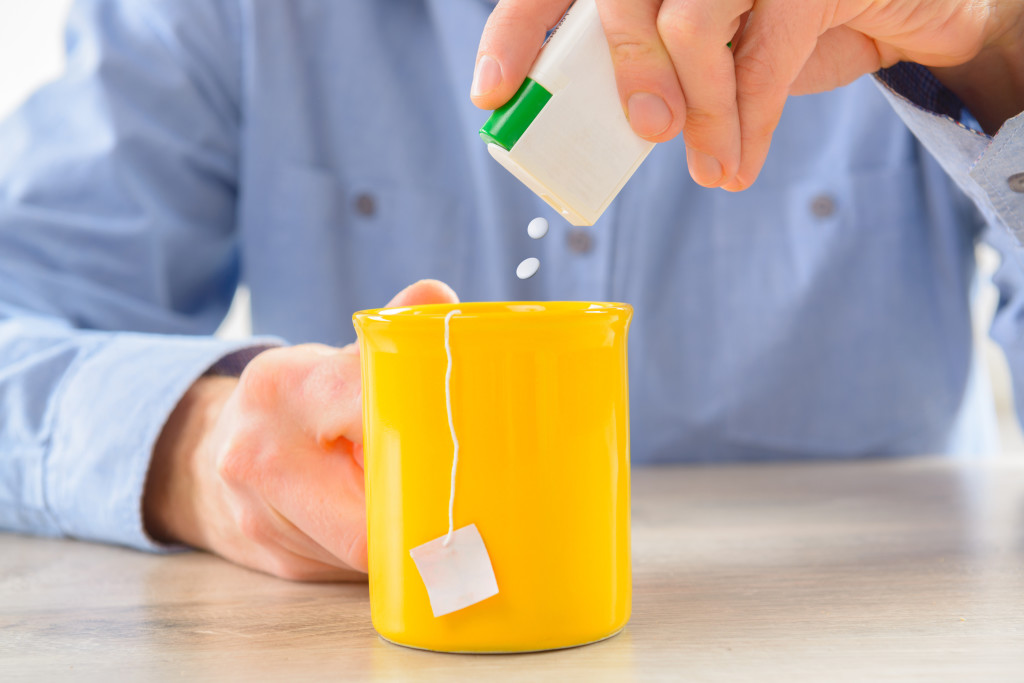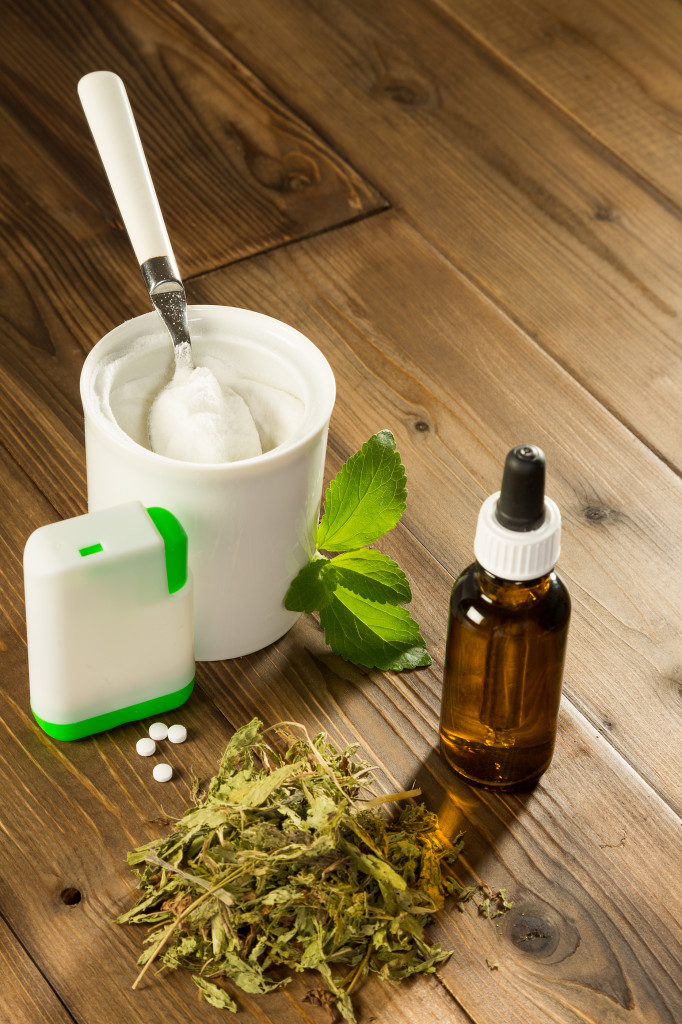 Given the massive consumption of sugar around the world, and the now-not-debatable link with obesity, diabetes, renal failure of metabolic syndrome, and probably cancer, we still search for the Holy Grail of sweeteners: is there some sweet treat that doesn’t cause inflammation and weight gain like cane or corn sugar? Or that creates that delight without being so high calorie while providing no nutritional value? Is stevia the answer? Heck, we’ve even assumed man’s best friend needs sweet treats and begun
Given the massive consumption of sugar around the world, and the now-not-debatable link with obesity, diabetes, renal failure of metabolic syndrome, and probably cancer, we still search for the Holy Grail of sweeteners: is there some sweet treat that doesn’t cause inflammation and weight gain like cane or corn sugar? Or that creates that delight without being so high calorie while providing no nutritional value? Is stevia the answer? Heck, we’ve even assumed man’s best friend needs sweet treats and begun imposing feeding them “low calorie” “diet” grain-based (that say “no empty calories”) pet foods sweetened with stevia.
A type of plant native to Central and South America, Stevia has very sweet leaves and has been used for centuries to sweeten drinks and as a sugar substitute. Stevia extract can be 300 times sweeter than sugar, is not a toxic chemical (but read on) compared with sugar substitutes like Splenda (which, while 600 times sweeter than sugar, has been shown to alter gut microflora, elevate liver enzymes responsible for breaking down toxic chemicals—compromise immune function and may contribute rather than fix blood sugar imbalances and being overweight). Although the U.S. Food and Drug Administration has approved aspartame, acesulfame-k, neotame, cyclamate and alitame for use at low levels, breakdown products of all these sweeteners have controversial health and metabolic effects. But back to stevia…
So, Is Stevia Safe? Well, there is conflicting data…
 Stevia has two sweet-taste compounds: rebaudioside A and stevioside. The liver breaks these both down to make steviol and then a final chemical which is eliminated. Stevia’s no-calorie effect is basically because it’s not used by the body. But, the stevia breakdown product is not broken down in nature either and in some places can be detected (along with various drugs) in the water supply.
Stevia has two sweet-taste compounds: rebaudioside A and stevioside. The liver breaks these both down to make steviol and then a final chemical which is eliminated. Stevia’s no-calorie effect is basically because it’s not used by the body. But, the stevia breakdown product is not broken down in nature either and in some places can be detected (along with various drugs) in the water supply.
Beginning in the 1980s, multiple studies pointed to possible health risks associated with stevia-derived artificial sweeteners. Click here for one of the best scientific compilation of this work from our friends at UCLA. Caution: this is a very technical read.
One study found steviol to be mutagenic in high amounts. But additional studies using amounts more like what we’d typically consume showed mixed results. As research continues the pendulum is swinging back toward the mutagen side. We probably just do not know enough yet; so decide whether or not you want to be part of this human experiment.
Based on research available in 2008, the US FDA has declared “no objection” to stevia as a food additive and sugar substitute; the European Food Safety Authority (EFSA) has also published scientific opinion that sweeteners extracted from the stevia plant, are safe for use in foods and beverages. Both government entities have established an Acceptable Daily Intake (ADI) for their safe consumption after considering the available carcinogenic and genotoxic data.
Stevia Health Benefits
The potentially compelling thing about stevia is that it does not impact blood sugar levels and is a very low-calorie sweetener. This should, in theory, help those of us with blood sugar imbalances—most people on today’s Standard American Diet or who choose a high-grain diet. More good news for stevia arrived when a few (industry-sponsored) studies showed that the stevia-derived sugar substitutes (stevioside and rebaudioside A) not only taste sweet, but also may help individuals with diabetes by improving insulin production and possibly help lower blood pressure. Since the 1980’s, these studies have made their way all over stevia websites; slightly lower down than the mass-appealing “no calorie”, “all natural” and “safe” statements. But more recent studies (not mentioned on those same sites) are not so compelling; see here for blood pressure and here for work showing that stevia only increases insulin production when blood glucose has already gone too high—better late than never?
Right now, there is certainly not enough data to conclude that stevia is useful to treat high blood pressure, diabetes, osteoporosis or anything else. Switching off sweet treats of any kind and onto foods your body needs is supported by paper after paper…
This just in: Stevia has antioxidants?
Antioxidants help your body fight off inflammation and other damage caused by free radicals (“early aging”). As with all plants, the stevia plant is high in a number of antioxidants. Importantly, the question remains, do the refined, commercial, stevia products like Truvia or PureVia still have living, active anti-oxidants? Well, that depends on how it is made. Alcohol extractions appear to contain the antioxidants, but not so much the water extractions–which is the first step in most commercial processes. Other commercial chemicals (hexane, dichloromethane—do I want this in me?) used to extract the sweet flavor pull out differing amounts of antioxidants.
A quick trot over to the exhaustive scientific literature housed in the National Library of Medicine shows: no results. In other words, while there is an extensive amount of internet coverage on the anti-oxidant benefits of stevia, the word “stevia” is being loosely used. Truthfully, the stevia plant does have antioxidants, but the plant-derived tablets, powders and tinctures are not the same as the original plant (just like any synthetic or extracted compound). Whether or not these also contain the plant’s antioxidant properties is currently anyone’s guess, but unlikely.
The Politics: Sold everywhere, is stevia FDA approved?
 This from the US Food and Drug Administration website: “FDA has not permitted the use of whole-leaf Stevia or crude Stevia extracts because these substances have not been approved for use as a food additive. FDA does not consider their use in food to be GRAS [Generally Recognized as Safe] in light of reports in the literature that raise concerns about the use of these substances. Among these concerns are control of blood sugar and effects on the reproductive, cardiovascular, and renal systems. Food additives and GRAS affirmation petition or pre-petition submissions for the use of such substances that FDA has received in the past have not contained the data and information necessary to establish the safe use of these substances as ingredients in food.”
This from the US Food and Drug Administration website: “FDA has not permitted the use of whole-leaf Stevia or crude Stevia extracts because these substances have not been approved for use as a food additive. FDA does not consider their use in food to be GRAS [Generally Recognized as Safe] in light of reports in the literature that raise concerns about the use of these substances. Among these concerns are control of blood sugar and effects on the reproductive, cardiovascular, and renal systems. Food additives and GRAS affirmation petition or pre-petition submissions for the use of such substances that FDA has received in the past have not contained the data and information necessary to establish the safe use of these substances as ingredients in food.”
The economics: Stevia is so concentrated… other “stuff” is added
 In most store-bought stevia, the actual manufactured chemical is called Stevia Reb-A (Rebidouse A). The problem is that this chemical is so sweet that if you just put ONLY the stevia extract in a single serving packet, that packet would look empty. So, for packaging and competitive marketing purposes, manufacturers “bulk up” the volume with fillers.
In most store-bought stevia, the actual manufactured chemical is called Stevia Reb-A (Rebidouse A). The problem is that this chemical is so sweet that if you just put ONLY the stevia extract in a single serving packet, that packet would look empty. So, for packaging and competitive marketing purposes, manufacturers “bulk up” the volume with fillers.
So what substances pray tell did they decide to use?
- Maltodextrin—mass-produced from corn, mostly GMO, and which causes a blood-sugar response.
- Dextrose—modified glucose naturally found in plants. Did they forget this was not suppose to be sugar?
- Erythritol or Xylitol—both sugar alcohols; one from corn the second birch trees. Both cause stomach and other digestive tract problems in many people. And when from corn, consider that it supports GMO agriculture if the product is not organic.
Definitely read the ingredients carefully and train yourself to accept the concentrates.
The bottom line?
Truthfully, when we try to “trick” our well-trained mind it usually doesn’t work. Stimulating the sugar-reward pathway can invoke cravings and lead to other poor choices. Most diet stevia products come with their own portions of inflammatory seed oils and other problems, yet many get the idea that these are somehow “healthy” if only because they are “no sugar.”
If you are trying to loose weight, you first have to handle inflammation. Stevia or any sugar substitute is really not the answer. Continuing to give your body something it doesn’t need or want and not giving it healthy fats will decimate your weight loss goals. And as your body needs the correct gut bacteria to absorb nutrients, stevia may be part of the problem. Better to stick to the 90 percent “angelic” 10 percent “bad” rule. Make that 10 percent a sweet that gives you nourishment, like fruit or maple syrup.
It is better to retrain your thinking. Just try to get off the need for sweets and reward yourself in other ways.
[contact-form-7 id=”1851″ title=”Question form blog page”]








“Erythritol—a sugar alcohol from birch trees, this causes stomach and other digestive tract problems in many people.”
From all I can find, erythritol is only derived from corn. Xylitol is found from corn or birch.
Cynthia, you are absolutely right. I updated the whole section about additives as I also found another missing from the list–dextrose of all things. This should now be more technically correct; thank you for pointing this out. –Marie
“So what substances pray tell did they decide to use?
“Maltodextrin—mass-produced from corn, mostly GMO, and which causes a blood-sugar response.
“Dextrose—modified glucose naturally found in plants. Did they forget this was not suppose to be sugar?
“Erythritol or Xylitol—both sugar alcohols; one from corn the second birch trees. Both cause stomach and other digestive tract problems in many people. And when from corn, consider that it supports GMO agriculture if the product is not organic.
“Definitely read the ingredients carefully and train yourself to accept the concentrates.”